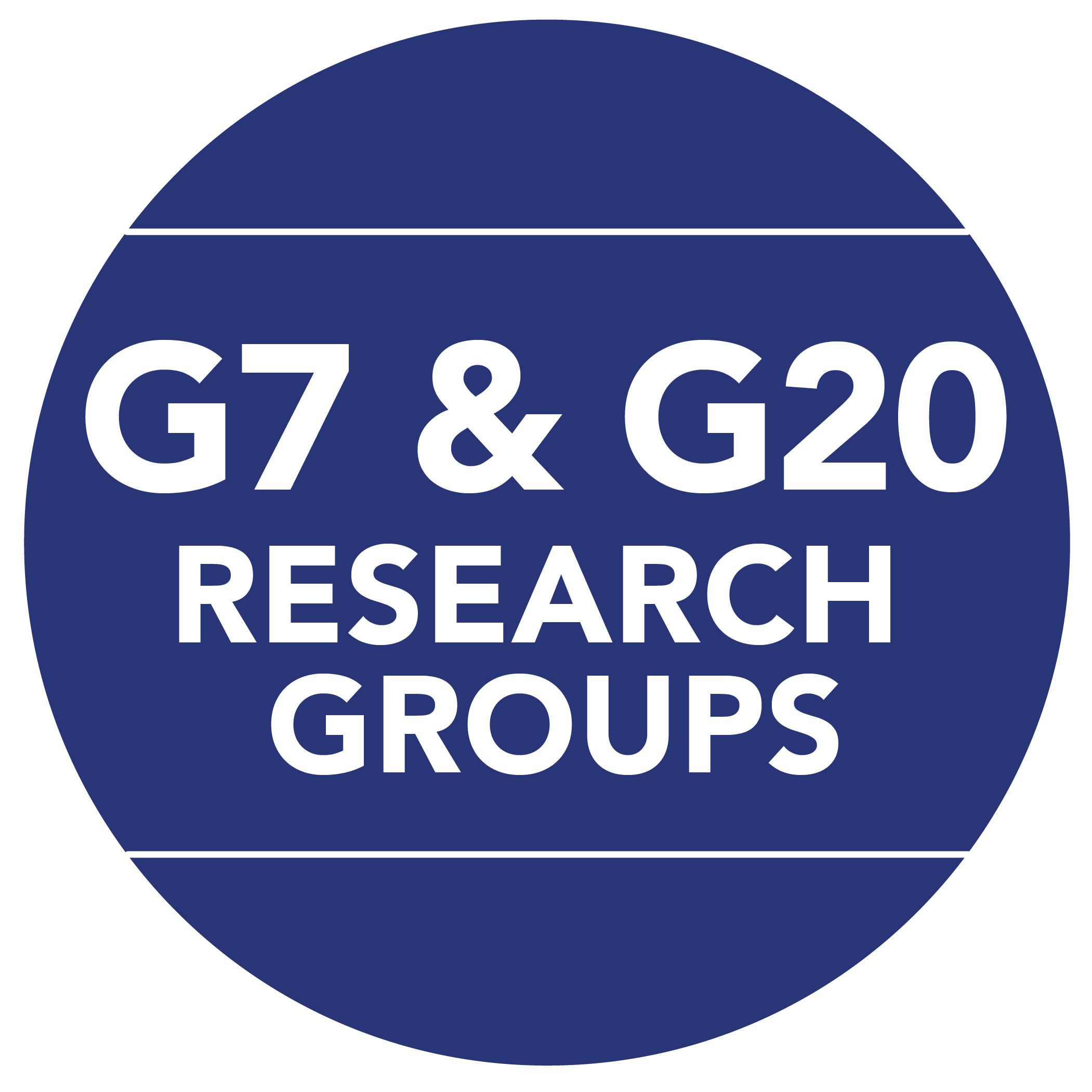

 |
 |
|
Connecting Security and Climate Change at G7 Foreign Ministers Meetings:
Making the Missing Link from Lucca 2017 at Toronto 2018
John Kirton, Director, G7 Research Group
April 22, 2018
In the real physical world, security and climate change are closely connected in many ways. But in the high-level political world, when G7 foreign ministers assembled at their last annual meeting in Lucca, Italy, in April 2017, they hardly addressed or acted on that link at all.
In their very lengthy communiqué, containing 141 commitments, they mentioned climate change only three times, and clearly committed to act on it only once.
First, on Africa, they recognized "the visible consequences of climate change affecting the sub-Saharan belt" but made no commitments in response.
Second, on maritime security, they committed to "safeguarding the ocean's health and inspiring climate resilience in order to ensure conservation and sustainable use of living marine resources including marine biodiversity." They thus welcomed "the EU initiative to host the 'Our Ocean' conference later this year."
Third, on the United Nations, peace and security, they stated: "We welcome the continuous efforts of the G7 Working Group on Climate Change and Fragility, the Group's Terms of Reference and we look forward to this progress report in 2018. We also encourage the Working Group to identify proposals for action to increase resilience in fragile states."
The year 2018 has now arrived. As host of the G7 this year, Canadian prime minister Justin Trudeau has placed climate change along with peace and security as two of the first priorities the Charlevoix Summit will address. Will the G7 foreign and security ministers meeting in Toronto on April 22–24 help pave the way by acting on the climate-security link more than the foreign ministers alone did at Lucca last year?
 John Kirton is director of the G7 Research Group, and co-director of the G20 Research Group, the Global Health Diplomacy Program and the BRICS Research Group, all based at Trinity College at the Munk School of Global Affairs at the University of Toronto. He is also a Non-resident Senior Fellow at the Chongyang Institute for Financial Studies at China's Renmin University. A professor of political science, he teaches global governance and international relations and Canadian foreign policy. His most recent books include Accountability for Effectiveness in Global Governance, co-edited with Marina Larionova (Routledge 2018), China's G20 Leadership (Routledge, 2016), G20 Governance for a Globalized World (Ashgate, 2012) and (with Ella Kokotsis), The Global Governance of Climate Change: G7, G20 and UN Leadership (Ashgate, 2015), as well as The G8-G20 Relationship in Global Governance, co-edited with Marina Larionova (Ashgate, 2015), and Moving Health Sovereignty in Africa: Disease, Govenance, Climate Change, co-edted with Andrew F. Cooper, Franklyn Lisk and Hany Besada (Ashgate, 2014). Kirton is also co-editor of several publications on the G7/8, the G20 and the BRICS published by Newsdesk Media.
John Kirton is director of the G7 Research Group, and co-director of the G20 Research Group, the Global Health Diplomacy Program and the BRICS Research Group, all based at Trinity College at the Munk School of Global Affairs at the University of Toronto. He is also a Non-resident Senior Fellow at the Chongyang Institute for Financial Studies at China's Renmin University. A professor of political science, he teaches global governance and international relations and Canadian foreign policy. His most recent books include Accountability for Effectiveness in Global Governance, co-edited with Marina Larionova (Routledge 2018), China's G20 Leadership (Routledge, 2016), G20 Governance for a Globalized World (Ashgate, 2012) and (with Ella Kokotsis), The Global Governance of Climate Change: G7, G20 and UN Leadership (Ashgate, 2015), as well as The G8-G20 Relationship in Global Governance, co-edited with Marina Larionova (Ashgate, 2015), and Moving Health Sovereignty in Africa: Disease, Govenance, Climate Change, co-edted with Andrew F. Cooper, Franklyn Lisk and Hany Besada (Ashgate, 2014). Kirton is also co-editor of several publications on the G7/8, the G20 and the BRICS published by Newsdesk Media.
|
This Information System is provided by the University of Toronto Library |
All contents copyright © 2024. University of Toronto unless otherwise stated. All rights reserved.